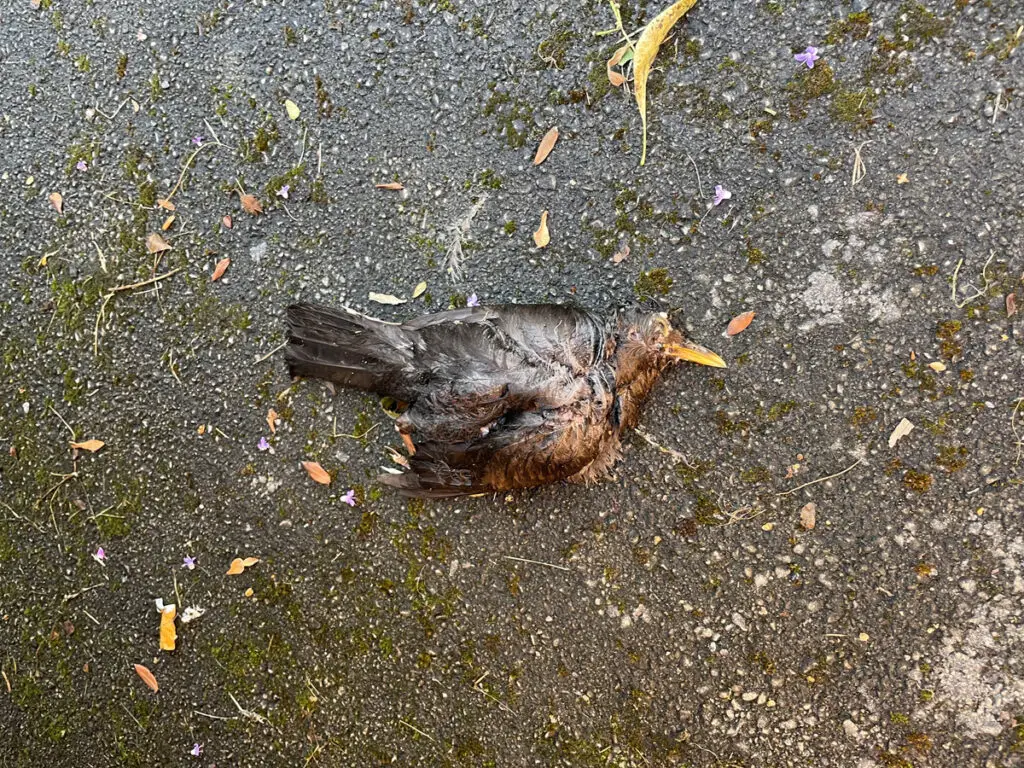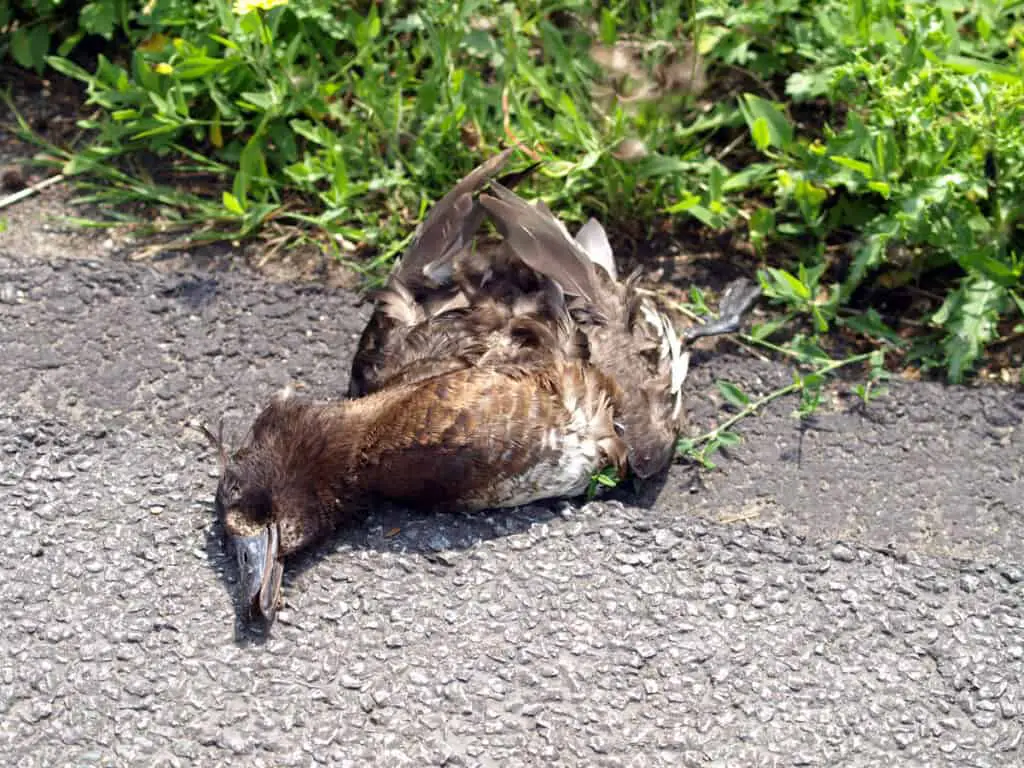From time to time, you find yourself needing to dispose of things that are a little out of the ordinary. If a bird dies in your garden, most people won’t be sure what to do with it. As birds can carry diseases that are harmful to humans, it’s important to handle them carefully. So, how should you dispose of a dead bird?
Contents
Safely Handling Deceased Birds
To dispose of a dead bird in the garden, wear gloves and pick it up with two plastic bags, one inside the other, and turn them inside out without touching it directly. If possible, tie the top of the outer bag, again being careful not to touch the bird with your hands. Then place it into the general waste bin for collection with your normal household rubbish.

Reporting Dead Birds
Commonly seen birds only need to be reported to a public health agency if they’re found dead in groups, generally speaking five or more. Just like all animals, birds inevitably pass away at the end of their lives, and will often be found in gardens.
You need to report dead water birds like geese and swans if you come across them, but not more common birds in residential areas if there’s no reason to believe the cause is either natural or they’ve fallen prey to a normal predator. In the latter case you can just go ahead with disposal using the above approach.
When dead wild birds are found in groups, the chances are greater that there is an outbreak of a disease like avian flu (more commonly known as bird flu), which may need further investigation. If you believe this may be the case, you can contact Defra for guidance on 03459 223377 with the location of the potentially sick birds.
Avoid Picking Up Dead Birds With Bare Hands
Ideally, avoid touching wild animals in general with bare hands, even if they’re otherwise healthy. Some species can happily carry bacteria and diseases that are toxic or even potentially life threatening to humans, so always wear gloves wherever possible.
If you’ve touched a dead bird with your bare hands, be sure to wash your hands as soon as possible with plenty of soap and warm or hot water, and rinse well afterwards. Also avoid touching your face and other surfaces as far as possible until you’re sure you’ve washed away any hazards.
Disposable plastic gloves are best for handling dead animals, as you can turn them inside out as you remove them, reducing the chance of coming into contact with anything harmful.
Using A Second Plastic Bag
When disposing of a dead bird’s remains, it’s recommended that you (at least) double bag it before putting it into the wheelie bin.
There’s a couple of reasons for this guidance:
- Bags break
Sometimes plastic bags tear, so by using at least two, there’s less chance of anything spilling out in your bin, or later before it reaches its final destination. That means you’re protecting yourself and your family until it’s taken away, and the bin men as they collect your rubbish on collection day. - The smell
A dead bird will begin to decompose relatively quickly, and your bin might not be emptied for some time. The smell might be unpleasant if the bird isn’t well wrapped, but more importantly, you don’t want to attract any scavenging animals trying to get into your bin to get to it.
Where Birds Go To Die
When birds reach the end of their lives, they usually become slower and less active, just like humans. As they spend a lot of time in trees and out in nature, they naturally become more likely to fall prey for larger birds and other animals that hunt for food.
As a result, a lot of birds end up as food for other animals, or their bodies simply decompose in trees if they’re well protected from other animals.
If you happen to live near the sea, you might also be familiar with birds washing up on the beach. It may be that they’ve passed away perched on a pier or ledge of cliffs and fallen into the water – it’s not always that they simply fell into the water while flying.

Do Birds Fall Out Of The Sky When They Die?
We’re used to seeing birds flying majestically above our heads in the countryside and even in the air about cities. Fortunately though, it’s relatively rare to need to dodge falling dead wild bird corpses falling as a result of their sudden demise.
While occasionally some birds die mid flight, it’s relatively rare. The majority of birds die when they’re hunted by predators or die naturally at the end of their lives in trees or protected by plants in wild shrub covered areas in the countryside.
Birds Passing Away In Built Up Areas
The biggest reason that you’ll find dead birds in and around gardens is that they’re caught by animals – and in particular cats.
Our feline pets are famed for taking avian trophies home to their owners, even though we’re rarely impressed to see that our furry friends have brought an expired sparrow to show us.
While a lot of cats drag their conquests home to show off, many are also left to lie wherever they’re left, and a good number of them are cleared up before most of us ever see them. A lot of cats are out and about at night, so if they’re hunting in a park for example, there’s a good chance that obvious remains are cleared up as the bins are emptied on the council worker’s early morning rounds.
There are a multitude of other possibilities too – we’ve written about birds getting stuck in lofts before on the site. Once free, they are likely to be weaker than normal from panicking and trying to escape, so again, more likely to be unable to defend themselves from predators.
